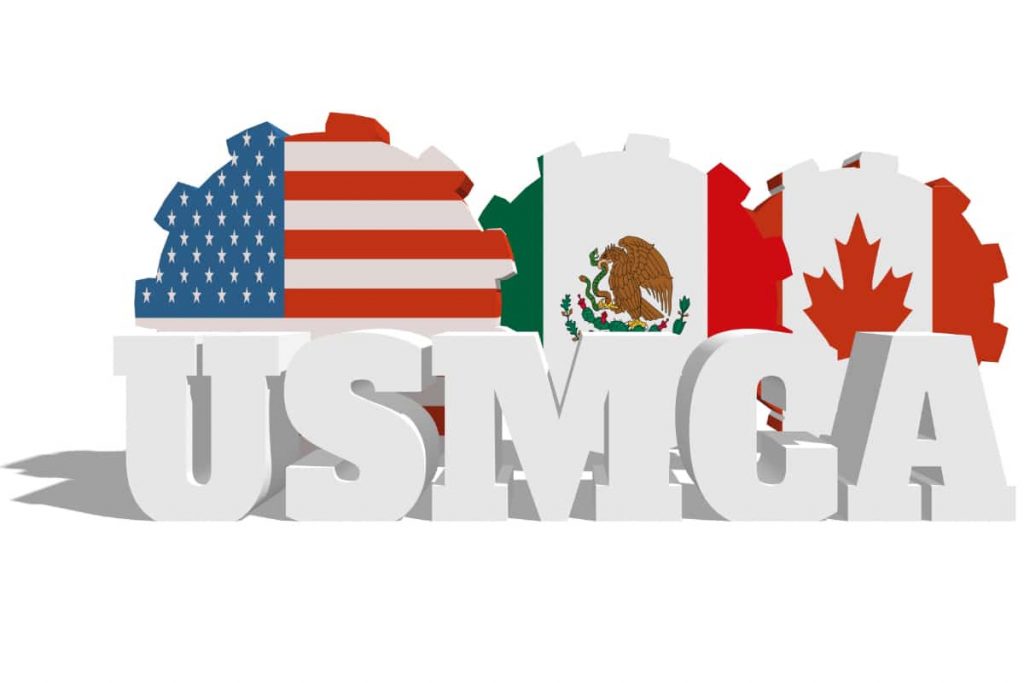
In the oversight hearing Tuesday, Chairman Wyden said the text was among the strongest agreements with regard to workers’ rights, environmental protections, and trade law enforcement.
Wyden said he and Iowa’s Sen. Chuck Grassley urged the Trump administration to take their time, noting that the time when countries have the most leverage in such agreements is during the planning stages. Trump refused, he said, deciding the “cake was baked before it was ready to come out of the oven.”
According to Wyden, one of the messes left for the Biden administration to clean up is Canada’s unfair block of U.S. dairy products, despite Canada’s pledge to allow more market access to U.S. dairy producers.
“The Canadians then undermined that commitment with new regulatory barriers before USMCA went officially into effect last July,” Wyden said. “The Trump administration hardly lifted a finger to do anything about it. Now the Biden administration will have to work to make sure our dairy farmers finally get access they were promised.”
Wyden said promised key reforms to Mexican labor laws to protect their workers has been too slow and he said he blames these problems on the weak text of the USMCA. This has reached into the U.S. agriculture industry, also, as Mexico has refused to approve innovative ag products like corn and soybeans, without any scientific justification. He said Mexico is also threatening to ban agricultural products that have been previously approved.
U.S. Senator Mike Crapo (R-Idaho), Ranking Member of the U.S. Senate Finance Committee said in his statement that Mexico and Canada are the U.S.’s most important trading partners, relationships that must not be taken for granted. Dairy exports to Mexico and Canada added up to $1.4 billion and $731 million respectively in 2018.
Crapo pointed out the new barriers the dairy industry is currently facing, including attempts to prevent U.S. farmers from using common cheese names, claiming they are geographic indications (GIs).
“The potato industry has also faced its share of challenges, with the Mexican Supreme Court only recently ruling that potato growers can sell fresh potatoes into all of Mexico, consistent with its obligations under the USMCA,” he said. “However, I will not consider the matter finished until Idaho’s farmers are able to sell high-quality potatoes to every family in Mexico.
Allan Huttema, Chair of the Northwest Dairy Association/Darigold, said USMCA made tremendous strides to modernize trade rules and facilitate the smooth flow of U.S. dairy products throughout North America, but the benefits of USMCA will only flow if Canada and Mexico properly implement the agreement. This will require proactive monitoring and enforcement of USMCA implementation, including through enforcement actions such as that taken against Canada’s administration of its tariff rate quotas for dairy products.
Huttema said U.S. Trade Representative Katherine Tai’s recent initiation of USMCA dispute settlement proceedings over Canada’s allocation of dairy tariff-rate quotas (TRQs) is a welcome step, additional monitoring and enforcement efforts must also focus on Canada’s implementation of its commitments on Class 7 pricing and export surcharges on Canada’s dairy protein exports, as well as on Mexico’s proliferation of ill-intended regulations that are aimed at disrupting trade.
“Vigilant monitoring and aggressive enforcement will also be necessary with our other USMCA partner, Mexico,” he said. “Mexico is the largest export market for U.S. dairy products, and the U.S. trade relationship with Mexico is of the utmost importance. Unfortunately, of late there has been a proliferation of poorly designed Mexican regulations that have been disrupting trade, eroding the U.S.’ role as a reliable supplier.”
“Regrettably, Mexico has acceded to the European demands to prevent the use of common food names through the imposition of illegitimate GIs,” he said. “Living in Idaho, I recognize the importance of defending the rights of specific regions like Idaho to protect compound names like “Idaho potatoes.” However, common cheese names like “parmesan,” in addition to certain meat as wine terms that indicate a type or method of production, been in the public domain for centuries and are considered as generic. GIs were not meant to restrict the generic names by which millions of consumers recognize some of their favorite foods; use of GIs to create this result must be firmly rejected as the protectionist and anti-trade policy that it is.”
Huttema said the EU has been aggressively seeking to confiscate generic terms that derive from part of the protected name or are otherwise in common usage – such as “parmesan,” “feta,” and “asiago.” The threat to common food names is not constrained to dairy but extends to other products as well, such as generic meat terms like “black forest ham” and “bologna,” as well as common descriptive terms for wine such as “vintage” and “chateau,” or the use of common wine grape varietal terms. He called the campaign “as deliberate as it is destructive.”























